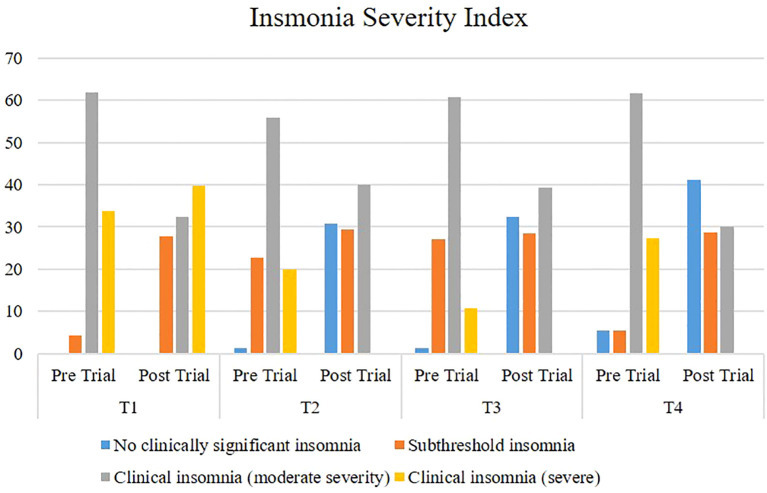
Magnesium and Its Effect on Sleep Quality
Magnesium is an essential mineral involved in over 300 biochemical processes in the human body, playing a crucial role in overall health. One of its most notable benefits is its ability to improve sleep quality through its influence on the nervous system, muscle relaxation, and neurotransmitter synthesis. Below, we will explain how magnesium can help everyone enjoy more restful sleep. Additionally, we will present a recent study showing how magnesium supplementation helped improve sleep quality in a group of people with diabetes, who are prone to sleep disorders.
How Does Magnesium Help Improve Sleep?
Regulation of the Nervous System
Magnesium acts as a natural modulator of the nervous system, helping to balance brain functions and reduce anxiety. This mineral promotes the production of GABA (gamma-aminobutyric acid), a key neurotransmitter that encourages relaxation and decreases stress levels.
Muscle Relaxation
Muscle tension is a common cause of insomnia. Magnesium relaxes muscles by regulating calcium and potassium levels in muscle cells, facilitating a calm state that prepares the body for sleep.
Melatonin Production
Magnesium is also involved in the synthesis of melatonin, the hormone that regulates the sleep-wake cycle. Optimal melatonin levels are essential for falling asleep quickly and maintaining good sleep quality throughout the night.

Additional Benefits of Magnesium
In addition to its impact on sleep, magnesium offers other key benefits:
- Stress Management: Reduces cortisol levels, the stress hormone, promoting an overall state of relaxation.
- Cardiovascular Health: Regulates blood pressure and prevents cardiovascular diseases.
- Reduction of Inflammation: Has anti-inflammatory properties that contribute to overall health.
The Study on Magnesium and Sleep
A recent study on this topic is titled "Effects of magnesium and potassium supplementation on insomnia and sleep hormones in patients with diabetes mellitus", published in Frontiers in Endocrinology. This randomized, double-blind, controlled clinical trial studied the effects of magnesium and potassium supplementation on sleep quality and sleep-related hormones in patients with diabetes. There is a correlation between poor sleep quality and duration and a higher incidence of insomnia in diabetic individuals. The study included 320 participants, of whom 290 completed the follow-up over a two-month period.
Study Design: Participants were divided into four groups:
- Placebo Group (T1): Received a daily dose of magnesium.
- Magnesium Supplementation Group (T2): Melatonin regulates the sleep-wake cycle. The levels of this hormone increased in the magnesium group, improving the synchronization of sleep cycles.
- Potassium Supplementation Group (T3): Received potassium.
- Combined Magnesium and Potassium Supplementation Group (T4): Received both supplements.
Results: The group that received magnesium (T2) showed significant improvements in sleep quality compared to the placebo group. Some of the main findings include:
- Reduction in Insomnia Severity: Using the Insomnia Severity Index (ISI), researchers observed a significant decrease in insomnia symptoms in participants who took magnesium.
- Improvement in Sleep Duration: Participants reported a notable increase in total sleep time.
- Sleep hormone mosulation:
- Reduction in Cortisol: This stress hormone, known to disrupt sleep, significantly decreased in the magnesium group.
- Increase in Melatonin: The production of this key hormone for regulating the sleep-wake cycle increased in participants who took magnesium, facilitating more restorative sleep.

The study concludes that magnesium supplementation not only improves sleep quality but also has a positive impact on hormones involved in sleep cycles.
Supplementation with Marine Magnesium
For those seeking a high-quality source of magnesium, Marine Magnesium is an excellent option. This supplement is extracted from purified seawater, ensuring highly bioavailable magnesium for the body. Its ease of absorption makes it an effective ally for improving sleep quality, reducing stress, and supporting overall well-being.
Marine Magnesium is ideal for those who wish to improve their nightly rest and overall health. Moreover, being 100% natural, it offers a safe and effective option for those who prefer supplementation without artificial chemicals.
Marine Magnesium and Melatonin: A Perfect Combination for Sleep
The combination of magnesium and melatonin is not only a practical strategy but also supported by research showing its effectiveness in improving sleep quality. By combining the complementary benefits of these two components, this synergy addresses several factors contributing to insomnia and other sleep disorders.
- Stress Management: By helping to reduce cortisol levels, magnesium promotes an overall state of relaxation.
- Cardiovascular Health: Essential for maintaining a healthy heart, it regulates blood pressure and prevents cardiovascular diseases.
- Reduction of Inflammation: Magnesium has anti-inflammatory properties beneficial for overall health.
How Magnesium and Melatonin Interact
- Regulation of Hormones and the Circadian Cycle:
- Magnesium: It is essential for melatonin synthesis, playing a role in the conversion of tryptophan to serotonin and then melatonin. This process is crucial for maintaining a stable sleep-wake rhythm.
- Melatonin: It acts directly on melatonin receptors (MT1 and MT2) in the brain, promoting relaxation and signaling the body that it's time to sleep.
- Combined Effect on the Nervous System:
- Magnesium reduces neuronal excitability by regulating GABA activity, while melatonin complements this action by decreasing sympathetic nervous system activity, promoting a state of deep calm before sleep.
- Support in Stress Management:
- Magnesium modulates cortisol production, a hormone that can disrupt sleep when elevated. Melatonin, in turn, alleviates the effects of a disrupted circadian rhythm caused by chronic stress or jet lag.
Who can benefit the most from this combination?
The combination of magnesium and melatonin can be particularly beneficial for:
- People suffering from insomnia or difficulty falling asleep.
- Individuals with circadian rhythm disorders, such as jet lag or shift work.
- Elderly individuals, who naturally produce less melatonin.
- People facing high levels of stress or anxiety, hindering their nightly rest.

